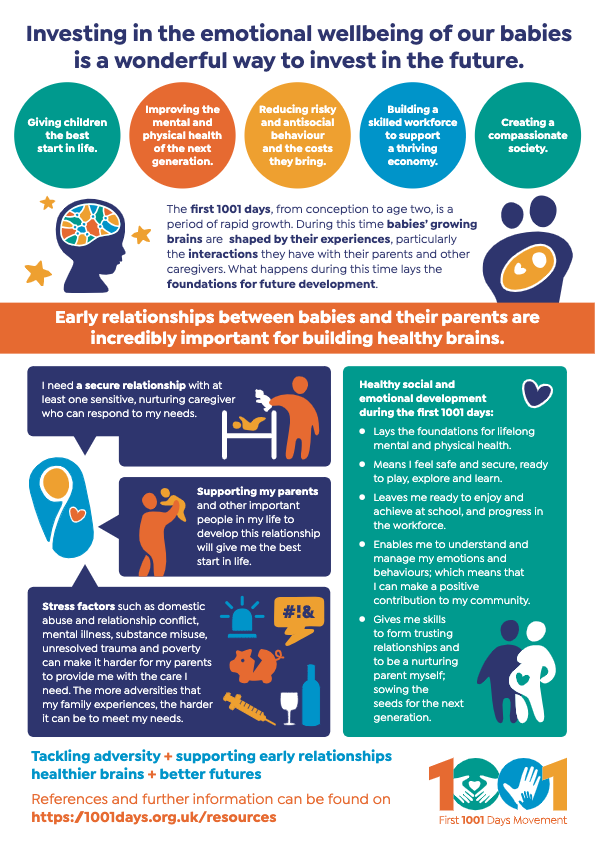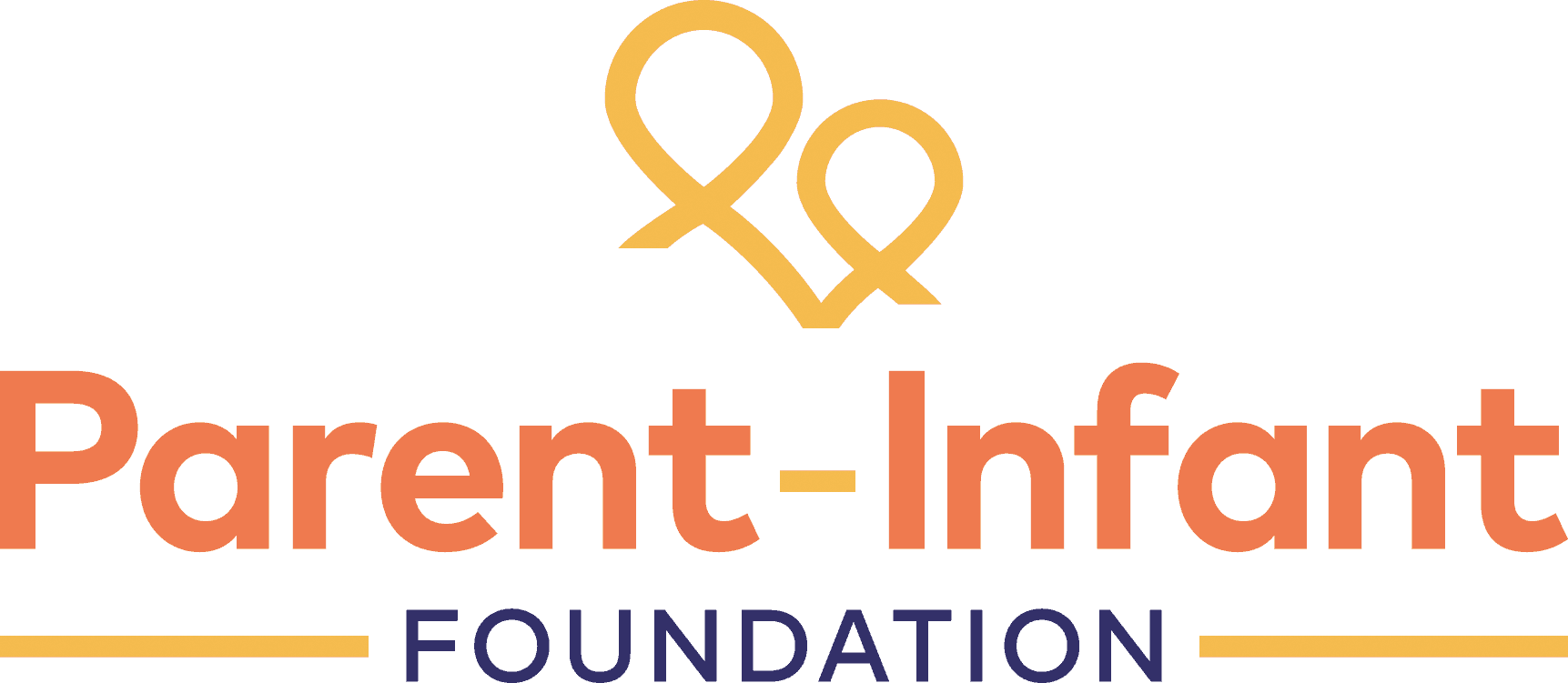The positive influences of healthy relationships
Early relationships influence a baby’s brain, and in particular their social and emotional development. This early development plays an important role in how well a child will go on to achieve many of the key outcomes that parents, the public, professionals and policy makers care about.
For example, babies who have had good early relationships start school best equipped to be able to make friends and learn. This increases the chances that they will achieve their potential in later life and contribute to society and the economy.

A child’s early relationships shape how their perceptions of themselves and others. They also influence how children learn to regulate their emotions and control their impulses. Children who can control their emotions and behaviours are better able to settle into the classroom and to learn. They have a template for positive relationships, which builds self-confidence and self-esteem, and can strengthen their relationships with peers and teachers.
Emotional regulation is at the heart of many of the challenges currently concerning policy makers. Better self-regulation is strongly associated with mental well-being, good physical health and health behaviours, and socio-economic and labour market outcomes.
Parent-infant interactions also help to develop other skills in children, for example, when parents talk, sing and read books with their children, it supports early language development.
Young people who can regulate their emotions and behaviours and develop positive relationships are more likely to have good mental health, and to avoid risky, harmful or antisocial behaviour such as self-harm and youth violence.
Healthy relationships enable children to develop the capacities they need to participate in society and to lead happy and fulfilling lives. A child’s experience of being parented also influences how they go on to parent their own children; supporting babies’ brain development pays dividends for generations to come.
The impact of relational trauma
Whilst positive early relationships support health development, relational trauma can have pervasive impacts on child development.
Early traumatic experiences and toxic stress are associated with a wide range of poor outcomes. All children will experience some stress. Toxic stress refers to prolonged high levels of stress that occur in the absence of relationships that can protect the child and buffer the impacts of this stress.
If a child’s emotional environment causes them to feel unsafe or fearful, or if they experience toxic stress in the absence of a buffering relationship, this influences their psychological and neurological development. It will influence how their brain develops to deal with stress in later life.
Early adversity and toxic stress are linked to worse physical and mental health outcomes, with costs to individuals, families, communities and the public purse.
The impacts of early adversity can often be overcome, but it is harder and often more costly to improve children’s lives later.
“It is easier to build strong children than to repair broken men” [1]
Footnotes
[1] Quote widely attributed to Frederick Douglass but original source unknown.
